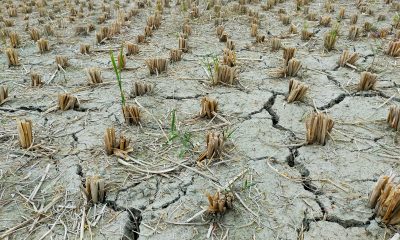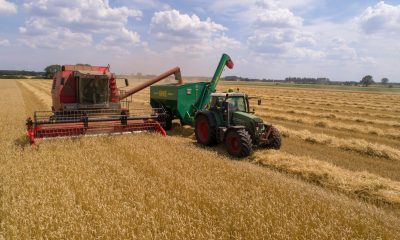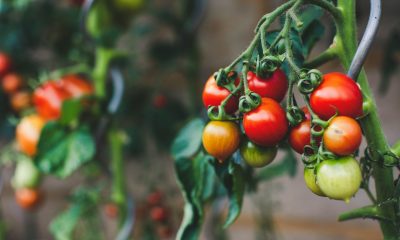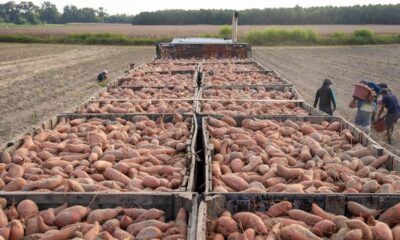Africa
Food Sovereignty: The Moroccan Agricultural Model Reveals Multiform Crises
Starting from the fact that food sovereignty is a means to achieve food security, Morocco has integrated the basic principles of food sovereignty into its food security strategy, particularly through the Green Morocco Plan established in 2008 and the Generation Green strategy launched in 2020. In the wake of the current crisis, restoring the balance of production and supply systems is a necessity.
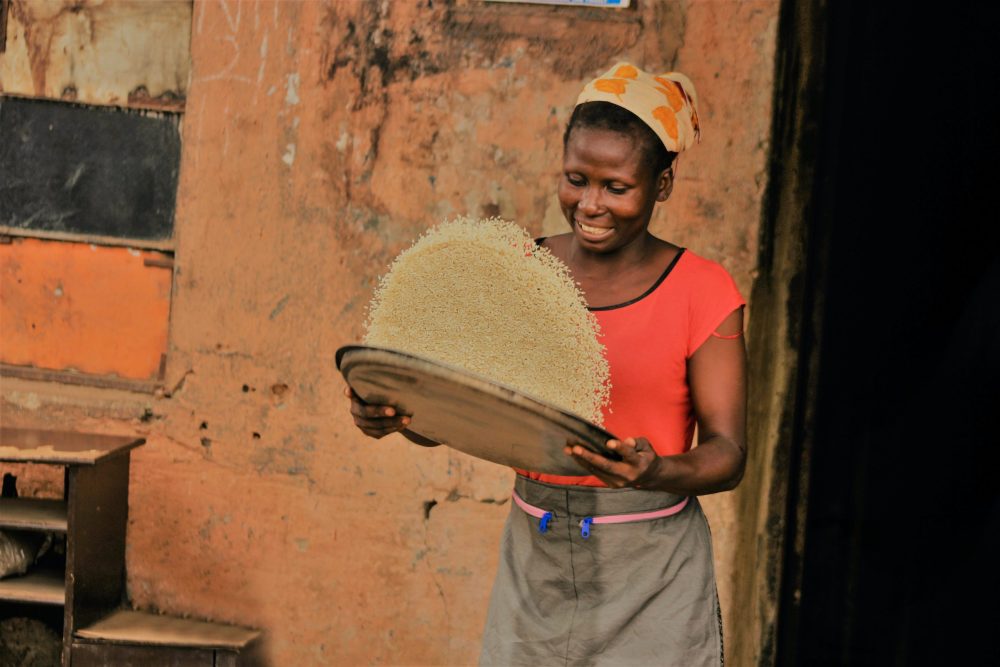
Food sovereignty in Morocco is now in question. Exceptional situations require exceptional measures! Not as simple as it seems, as the entire Moroccan agricultural model has been called into question in the face of the poly-crisis currently facing the agricultural sector.
In this unprecedented economic context, where food inflation continues to weigh on households (20.1% in February and 16.1% in March, according to the HCP), many agricultural sectors have shown signs of distress. And this, in the wake, on the one hand, of the cumulative surge in prices of raw materials and imported agricultural inputs, and, on the other hand, the succession of years of drought, the water crisis, and climate change. This is, in this case, the plant and animal sectors that have previously maintained levels of self-sufficiency sustained throughout recent years, with coverage rates quite high.
Among these agricultural sectors are those of fruit and vegetables, red meat and milk as well as the poultry sector. Hence the thorny issue of restoring the balance of value chains and production of these sectors, as part of the strategy “Generation Green”, alluding to the new contractualization with the agricultural interprofessional on the sidelines of the International Agricultural Exhibition of Morocco (SIAM) held in Meknes from May 2nd to 7th.
Read more about food sovereignty in Morocco and find the latest economic news of the day with the Born2Invest mobile app.
Action levers activated
In the meantime, several levers of action have already been activated by the public authorities in response to the multifaceted crises that the agricultural sector is going through, in order to mitigate the weaknesses observed in the production and supply systems of the plant and animal sectors.
For fruits and vegetables, it was a question of applying quantitative restrictions to the export, in addition to the resolution of the simplification of the exemption of the agricultural VAT to the importation with the widening of its spectrum via the adoption of the decree n° 2.23.335 carrying application of this tax foreseen in chapter III of the general Code of the taxes (CGI).
Regarding other sectors, including that of milk, there was a question, among others, to proceed with the import of heifers and dairy cows for the preservation and replenishment of the national livestock and the prohibition of the slaughter of productive heifers under five years.
The authorities have also allowed the import of domestic cattle for slaughter to ensure the supply of red meat to the national market at reasonable prices. In addition to the support provided to grain imports, through the program of subsidies for wheat imports, other measures have been taken. These include premiums for the collection of soft wheat and storage, in addition to the suspension of import duties applicable to oilseeds and crude oils of sunflower, soybeans, or rapeseed.
Food sovereignty or food security?
The current context has once again put food security at the center of the debate, with a real awareness of food sovereignty, for the past three years, especially with the fragility of production and supply systems and the vital nature of food chains and their production capacities. Starting from the fact that food sovereignty is a means to achieve food security, Morocco has integrated the basic principles of food sovereignty into its food security strategy, particularly through the Green Morocco Plan established in 2008 and the Generation Green strategy launched in 2020.
This complementarity between the two concepts has enabled the agricultural sector to achieve self-sufficiency and fairly high coverage rates for some sectors, which has allowed for price and production stability for crops before the advent of this crisis both cyclical and structural.
In previous years, it was complete self-sufficiency for fruits and vegetables, animal products such as milk and red meat, as well as coverage of 53% of the needs for cereals and 44% for sugar in ordinary years. However, it is currently essential to restore the balance in the various sectors affected under the strategy “Generation Green,” badly affected by this situation.
__
(Featured image by Stephen Olatunde via Unsplash)
DISCLAIMER: This article was written by a third party contributor and does not reflect the opinion of Born2Invest, its management, staff or its associates. Please review our disclaimer for more information.
This article may include forward-looking statements. These forward-looking statements generally are identified by the words “believe,” “project,” “estimate,” “become,” “plan,” “will,” and similar expressions. These forward-looking statements involve known and unknown risks as well as uncertainties, including those discussed in the following cautionary statements and elsewhere in this article and on this site. Although the Company may believe that its expectations are based on reasonable assumptions, the actual results that the Company may achieve may differ materially from any forward-looking statements, which reflect the opinions of the management of the Company only as of the date hereof. Additionally, please make sure to read these important disclosures.
First published in LES ECO.ma, a third-party contributor translated and adapted the article from the original. In case of discrepancy, the original will prevail.
Although we made reasonable efforts to provide accurate translations, some parts may be incorrect. Born2Invest assumes no responsibility for errors, omissions or ambiguities in the translations provided on this website. Any person or entity relying on translated content does so at their own risk. Born2Invest is not responsible for losses caused by such reliance on the accuracy or reliability of translated information. If you wish to report an error or inaccuracy in the translation, we encourage you to contact us.

-

 Business2 weeks ago
Business2 weeks agoDow Jones Near Record Highs Amid Bullish Momentum and Bearish Long-Term Fears
-

 Africa2 days ago
Africa2 days agoCameroon’s Government Payment Delays Exceed 200 Days, Straining Businesses and Public Finances
-

 Crowdfunding1 week ago
Crowdfunding1 week agoThe Youth Program at Enzian Shooting Club Is Expanding Thanks to Crowdfunding
-

 Crypto5 days ago
Crypto5 days agoTariff Turmoil Sends Bitcoin and Ethereum Lower as Crypto Markets Face Mounting Pressure
